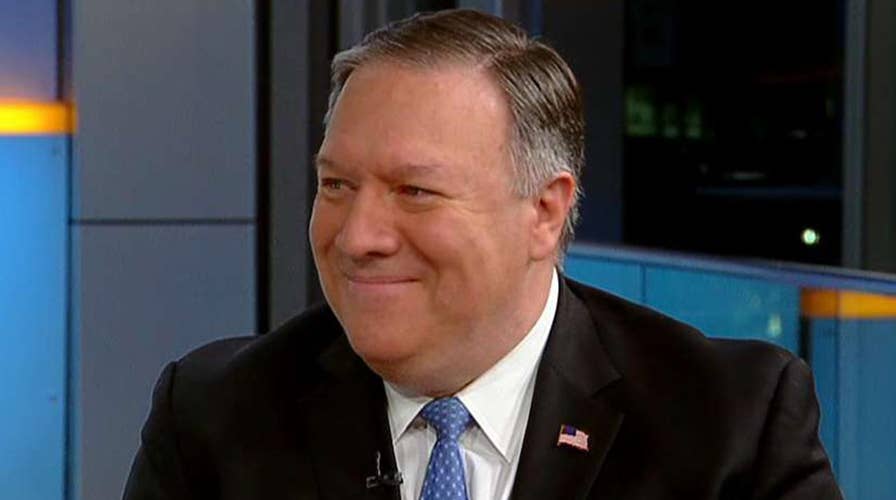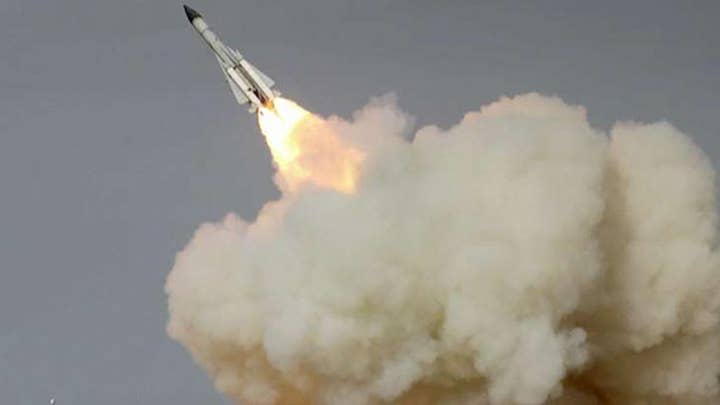Mike Pompeo: Trump is committed to protecting America
Secretary of State Mike Pompeo weighs in on the French terror attack, border security, Jamal Khashoggi murder, China, his speech in Brussels and Russia nuclear jets in Venezuela on 'Fox & Friends.'
Secretary of State Mike Pompeo on Thursday warned Iran over plans to launch rockets into space, saying the move would violate the U.N. resolution that enshrined the Obama-era nuclear deal -- the latest push by the U.S. to draw international attention to Iran’s destabilizing activity in the Middle East.
“The United States will not stand by and watch the Iranian regime’s destructive policies place international stability and security at risk,” Pompeo said in a statement. “We advise the regime to reconsider these provocative launches and cease all activities related to ballistic missiles in order to avoid deeper economic and diplomatic isolation.”
Pompeo was responding to Iranian plans to launch three Space Launch Vehicles (SLV), which the State Department says incorporate technology “virtually identical” to that found in ballistic and intercontinental ballistic missiles -- the latter could potentially reach the U.S.
CLICK HERE TO GET THE FOX NEWS APP
Pompeo said such actions would be in violation of U.N. resolution 2231 -- through which the Security Council endorsed the 2015 Iran deal, abandoned by the Trump administration last year. That resolution called upon Iran to cease the testing of ballistic missiles.
It's hardly the first such accusation against Iran. Previously in December, the U.S. accused Iran of test-firing a medium-range ballistic missile and declared that move in violation of 2231. European countries at the Security Council condemned the test, but only went so far as to declare it “inconsistent” with 2231, rather than in violation.
POMPEO CALLS FOR INTERNATIONAL COALITION AGAINST IRAN, AS EUROPE RAMPS UP PRESSURE
The Trump administration has called on European countries, which have defended the Iran deal, as well as others to join the U.S. in ramping up sanctions against Tehran. Last month, Pompeo said he wants to build a “coalition of responsible nations” to push back against malign Iranian activity.
“The United States will continue to unite sovereign nations in their responsibility to work for the peace and security of their own people and a stable international order,” he said at a meeting of the council on non-proliferation. “The United States will continue to be relentless in building a coalition of responsible nations who are serious about confronting the Iranian regime’s reckless ballistic missile activity.”
He has also dismissed the idea that the deal was bringing Iran into line: “Iran’s pace of missile activity, including missile launches and tests, did not diminish since [the Iran deal.] In fact, Iran’s missile testing and missile proliferation is growing.”
There have been signs that some European countries are looking at taking a tougher stance on Iran. At the U.N., U.K. Ambassador Karen Pierce last month defended the Iran deal, but warned Iran that the accord is “not a license [for Iran] to engage in destabilizing behavior elsewhere -- whether or not that has a nuclear link."
CRACKS IN IRAN DEAL COALITION? EUROPEANS FUME OVER TEHRAN MISSILE TEST
She accused Iran of “ignoring the will of this Council” and said that while Iran has national security interests, “the way Iran goes about pursuing those interests is leading to increased destabilization and is simply not legitimate in the modern world."














































